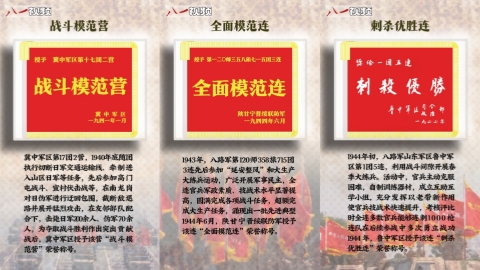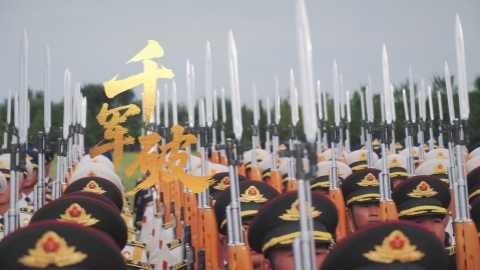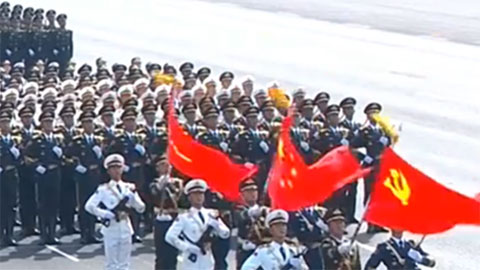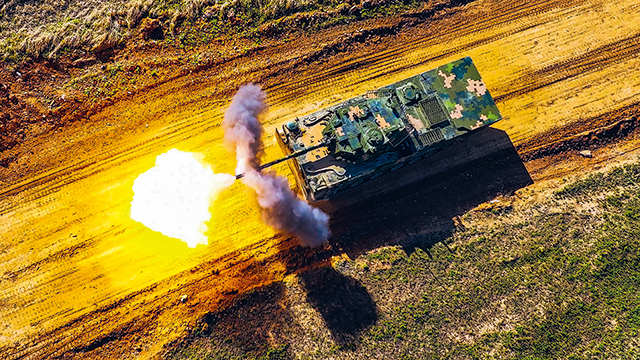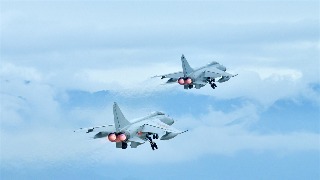By Chen Yue and Zhang Wenwen
The past year 2023 has seen frequent regional hotspots, with ongoing conflicts in Europe and renewed tensions in the Middle East. In the new year, issues such as national security, territorial sovereignty, and ethnic and religious matters are intertwined, contributing to increased instability, uncertainty, and unpredictable factors. However, the historical trend of peace, development, cooperation, and win-win situations remain unstoppable.
Military conflicts continue to escalate
Among various hotspots, the Russia-Ukraine conflict and the Palestinian-Israeli conflict remain the most globally concerned.
"Russia and Ukraine alternate attacks and defenses, with continuous casualties setting new records. It has turned into a protracted war of attrition, but the frontlines are generally stable, and both sides lack the capability to achieve significant breakthroughs on the battlefield," said Fang Ming, Deputy Researcher at the War Research Institute of the PLA Academy of Military Sciences. Both Russia and Ukraine have reiterated ceasefire conditions, but they cannot find a negotiation base and that will lead to a potential prolongation of the crisis.
As the conflict situation continues to stagnate, "Ukraine fatigue" is spreading in Western countries. "After the new round of Palestinian-Israeli conflict, US military aid to Israel has diverted aid to Ukraine. Despite the recent agreement on security cooperation between the UK and Ukraine, aid plans from the EU and the US face significant uncertainties," according to Fang.
As of January 14, 2024, the new round of conflict between the Islamic Resistance Movement (Hamas) and Israel has lasted for a full 100 days. On the day before, Israeli Prime Minister Benjamin Netanyahu stated that Israel would continue its military operations in the Gaza Strip until Hamas is eliminated, Israeli hostages are released, and the Gaza Strip no longer poses a threat to Israel.
Xie Hao, Assistant Researcher at China Institutes of Contemporary International Relations (CICIR), expressed that Israel's words and actions imply that the Palestinian-Israeli conflict will continue for a longer time, and an immediate ceasefire remains challenging for both sides.
Spillover effects continue to emerge
Since the outbreak of the current Palestinian-Israeli conflict, tensions have spread to Yemen, Lebanon, Iraq, and other countries. Israel and Hezbollah in Lebanon have engaged in continuous border skirmishes, while the US military bases in Iraq and Syria face frequent attacks. As the situation escalates following the assassination of Hamas's deputy chief, Saleh al-Arouri, on January 2 in the southern suburbs of Beirut, clashes between Israel and Hezbollah intensify.
After Houthi forces in Yemen frequently used drones and missiles to attack ships "associated with Israel" in the southern Red Sea waters, the US and the UK jointly carried out airstrikes on multiple Houthi targets. "The development of the situation once again proves the intricate nature of security issues in the Middle East. Simple military means are not helpful in alleviating regional tensions and may even exacerbate conflicts," said Xie.
Frequent conflicts not only lead to sustained security turbulence but also have far-reaching effects in political, security, economic, and social domains. "Russia is a major producer of oil and natural gas globally, and Western sanctions disrupting market mechanisms have led to historically high natural gas prices in Europe," said Yuan Zhao, Deputy Researcher at the War Research Institute of the PLA Academy of Military Sciences. Under the impact of the war, Ukraine's grain production has sharply decreased, and exports are hindered, which has exacerbated food crises in Africa.
In the past year, political upheavals occurred successively in countries including Sudan, Niger, and Gabon. "The unstable regional security situation has provided space for the resurgence and development of terrorist organizations," said Yuan, noting that as extremist groups like the Islamic State and Al-Qaeda gradually focus on the Sahel region of Africa as a primary survival and operational area, the counter-terrorism situation in multiple African countries may become more severe.
Calls for ceasefire and peace continue to rise
The prolonged conflicts have resulted in significant casualties and displaced populations. The international community continues to call for a ceasefire and the alleviation of humanitarian crisis.
All parties involved should persist in resolving differences and disputes through dialogue and negotiation for a peaceful solution. At the same time, the international community should urge the parties involved to achieve more humanitarian ceasefires and enhance humanitarian assistance. This can avoid larger humanitarian crisis and supply essential living materials to civilians. It can also accumulate conditions for a comprehensive ceasefire and conflict resolution, said Xie.
Fang said that in the past year, China has facilitated the reconciliation between Saudi Arabia and Iran, an effort leading to a wave of reconciliation in the Middle East and constituting an important practice in the promotion of global security initiatives. In 2024, under China's mediation and promotion, representatives of the Myanmar military and three northern ethnic armed groups including the Myanmar National Democratic Alliance Army (MNDAA),Ta'ang National Liberation Army (TNLA) and Arakan Army held peace talks in Kunming, Yunnan, China, and reached a formal ceasefire agreement.
In his first overseas visit in the new year, Chinese Foreign Minister held discussions with relevant parties and issued a joint statement on the Palestinian-Israeli conflict and the Palestine issue, actively promoted an early ceasefire, and prevented the conflict from further spilling over. These efforts highlight China's responsibility as a major country in maintaining global peace.
Experts believe that all parties should uphold a common, comprehensive, cooperative, and sustainable security perspective. They should adhere to the overall direction of political resolution, adapt to the profound adjustments in the international landscape with the spirit of unity, address complex intertwined security challenges with a mindset of mutual benefit, eliminate the root causes of international conflicts, improve global security governance, inject more stability and certainty into an era of turbulence and change, and achieve lasting peace and development in the world.








